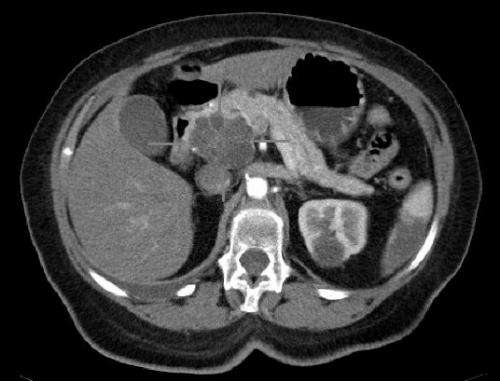Researchers also concluded that when used alone or in combination with a standard-of-care medication such as gemcitabine, pIC—a double-stranded RNA which acts as an immunostimulant—is safe and non-toxic to normal pancreatic cells, indicating this approach may have translational potential to improve the survival of people with pancreatic ductal adenocarcinoma (PDAC).
PDAC is one of the most difficult cancers to treat effectively, with a one-year survival rate of 24% and a five-year survival rate of just 9%. In the article, researchers co-led by Paul B. Fisher, M.Ph., Ph.D., FNAI, the Thelma Newmeyer Corman Endowed Chair in Cancer Research at Massey and director of the VIMM, showed the treatment combination significantly enhances the survival of immune-competent mice with PDAC tumors which capture the properties of human pancreatic cancer.
This research is the extension of pioneering work originally done by Fisher and colleagues to define ways of enhancing the anti-cancer activity of pIC. Previous clinical trials with pIC showed limited activation of the immune response and no detectable antitumor effects in melanoma or other cancers. However, when delivered into the tumor cell’s cytoplasm using polyethyleneimine (PEI), a synthetic, water-soluble polymer, pIC can successfully enter the cell and stimulate tumor cell death.
The current work, co-authored with Luni Emdad, M.B.B.S., Ph.D., associate professor in VCU’s Department of Human and Molecular Genetics and a member of the VIMM, and others documents a profound response in animals with PDAC when pIC is effectively delivered into tumor cells using PEI.
“Previous laboratory and preclinical studies have shown this method to also be effective in a number of other cancers, including breast, melanoma and liver cancer,” said Fisher, who is also a professor in the Department of Human and Molecular Genetics at VCU School of Medicine.
“In studying this phenomenon in mice with an intact immune system, we found that it worked exceptionally well in PDAC, extending life to an amazing degree just on its own, and enhanced even further in combination with gemcitabine. Nothing like this has been seen before when looking at the original pIC molecule without the use of PEI or other therapeutic modalities in PDAC.”

